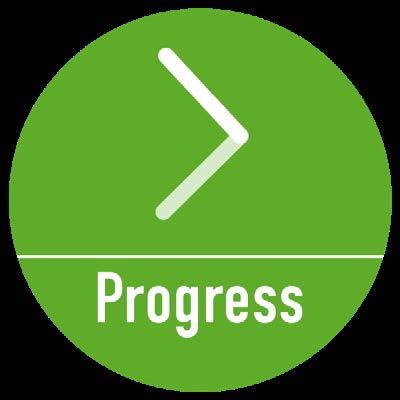Guide to... Postgraduate Study
Applications, Personal Statements and Interviews




Application process Personal statement Interview






Application process Personal statement Interview

Applying for Taught-based Postgraduate Study
HOW DO I APPLY?
There is no central admissions system that covers all taught-based postgraduate courses, with most applications direct to a university. Check the relevant university course webpage for information.
This guide outlines the application process for applying for postgraduate study in the UK, including advice on writing effective personal statements and succeeding at postgraduate interviews. You may also wish to refer to our ‘Guide to Choosing and Funding Postgraduate Study’.
• You apply online (the course webpage will inform you how to apply).
• Typically there is no limit on the number of courses you can apply for.
• You will need to complete a separate application form and personal statement for each course you apply for (exceptions may include conservatoire and teacher training applications).
• Application deadlines vary. Some courses have specific deadlines, whereas other courses may accept applicants up until the course start date.
• Entry requirements vary between courses and between universities.
WHAT DO I NEED TO APPLY?
Courses require an application form which will include your personal information, your previous academic study, work experience, and referee details. You may be asked for academic transcripts, outlining your degree study modules and grades (contact mycourse@bathspa.ac.uk to request these).
You will be asked to provide a personal statement, outlining your motivation for study and the skills, knowledge and relevant experience you possess. Some courses may also require a copy of your CV, a portfolio, or examples of written academic work.
FURTHER RESOURCES
• Masters (Prospects): Applying for a Masters degree
• UCAS Postgraduate: UCAS Applying for Postgraduate Courses
• UCAS Conservatoires: UCAS Conservatoires when to apply
Applying for Research-based Postgraduate Study, including PhD
HOW DO I APPLY?
Research-based master courses are typically advertised on university websites, whereas for PhD study, students either propose their own research area and apply for funding or seek an advertised studentship whereby an academic supervisor has already secured funding and is looking for a research student.
For research-based master courses and advertised PhDs, you will typically be expected to make a direct application via the university’s own website, but do check how to apply on the course webpage.
As both research-based masters and PhDs require you to work closely with an academic supervisor, it is recommended you contact potential academic supervisors prior to submitting a formal application.
WHAT DO I NEED TO APPLY?
You will need to submit a research proposal providing a research overview, research context and the research methods you intend to use. Do check university websites for guidance notes. You will also need to complete an application form with a personal statement, provide two or three academic references and your academic transcripts. Some courses may require a CV, portfolio, or other evidence of written work.
FURTHER RESOURCES
• Application Process (jobs.ac.uk): Masters application tips advice (page 9)
• PhD Study (Prospects): PhD Study Overview
• Applying for a PhD (FindaPhD.com): PhD Applications
• Preparing a PhD Application (jobs.ac.uk): Preparing for a PhD 10 Tips

Securing a place on a postgraduate study course can be competitive. An effective personal statement needs to demonstrate to the course leader your motivation for further study, your commitment to your subject, and outline how your skills, knowledge and experience make you a suitable candidate for the course. It is important the information you provide is relevant to the requirements of the course.
Some universities provide additional guidance notes about what they expect from a personal statement, so check specific university course webpages.
WHY DO YOU WANT TO APPLY FOR THIS COURSE/ UNDERTAKE THIS RESEARCH?
Try to convey your motivation to apply for this particular postgraduate study course/research.
Think about what inspires you to study your subject.
WHY THIS COURSE AT THIS UNIVERSITY?
There are likely to be many similar courses on offer with other universities, so consider what is motivating you to apply for a particular course at a particular university. Demonstrate you have researched the course, the academic department, and the university.
Consider aspects of the course that most appeal to you, for example, specific modules, work placements, links with industry professionals, and/or facilities.
WHAT ARE YOUR CAREER AIMS?
Focus on your current career aims and how the course/ research will support you to achieve them.
HOW DOES YOUR PREVIOUS ACADEMIC STUDY / SUBJECT KNOWLEDGE SUPPORT YOUR APPLICATION?
Think about what you have learned and achieved from your undergraduate study and how this prepares you for the postgraduate course/research you are applying for.
Be specific about your previous academic study and consider what is relevant (e.g. modules, dissertation project, assignments, industry briefs, placements) and how it supports your application.
WHAT SKILLS AND EXPERIENCE
Highlight relevant transferable skills that demonstrate your ability to study at postgraduate level and review the course details to identify any specialist skills required. Provide specific examples of how and when you have utilized relevant skills.
Focus on any relevant work experience that demonstrates your subject and/or career interests.
For example, conference or event attendance relevant to your subject, winning an industry award or gaining professional recognition, or membership to a professional association.
1. Think about the statement structure, including positive introduction and brief summary.
2. Try to be concise but specific (check course details for guidance on word count).
3. Think about how you can create short dynamic sentences and fully utilise ‘action words/verbs’ using professional and positive language to make your statement stand out.
4. Tailor your statement to the specific course you are applying for.
5. It is essential you avoid spelling or grammar mistakescheck, check and check again!
FURTHER RESOURCES
• Personal Statement Advice (Prospects): statements for postgraduate applications
• Personal Statement Advice (Target Jobs): write a winning application for your postgraduate course

Some courses may invite you to interview, while some vocational courses may also require you to complete additional assessment-related activities, such as a presentation or group activity. If you are invited to interview, read all the information provided by the university so you are clear what is involved.
A postgraduate interview is designed to further examine your skills and commitment to the course and university. It is important to approach the interview as you would a job interview by reviewing your research on the course and university, and revisiting your application. Question examples could include;
Why do you want to apply to this course or undertake this research program?
Why this university?
What skills can you offer?
How will this course support your career aims?
How do you intend to fund your study?
Which part of your degree course did you enjoy the most?
What do you feel are the main differences between undergraduate and postgraduate study?
Why should we accept you?
The focus of research-based masters and PhD interviews will be on your specific research interests. Research the department’s mission statement and current academic staff to learn about research priorities, interests, and positions in theoretical debates and how this aligns with your own research interests.
Consider your motives for research-based study
Showcase your personal skills and attributes and how well they fit with your intended research
Demonstrate your research of the department and academic staff interests
Postgraduate Interviews (Prospects): Postgraduate Interview Questions
PhD Interviews (jobs.ac.uk): Top 10 PhD Interview Questions & Answers
PhD Interviews (FindaPhD.com): PhD Interview Questions
Bath Spa Careers and Employability is here to help you get a great start to your career. We are open year round, so to find out more about how we can support you go to: www.bathspa.ac.uk/careers
As a student or recent graduate, MyCareer is your online portal for booking events, accessing appointments, submitting queries, and searching for jobs and placements.
You can also follow @bathspacareers on social media: Facebook | Twitter | YouTube | LinkedIn | Instagram
Every effort has been made to ensure the information in this resource guide is accurate but we recommend that you check all details carefully.
The University is committed to the promotion of equality and diversity. If you require this publication in an alternative format, please go to MyCareer to submit a request via ‘Questions’.
Published Summer 2021
Copyright Bath Spa University Careers





